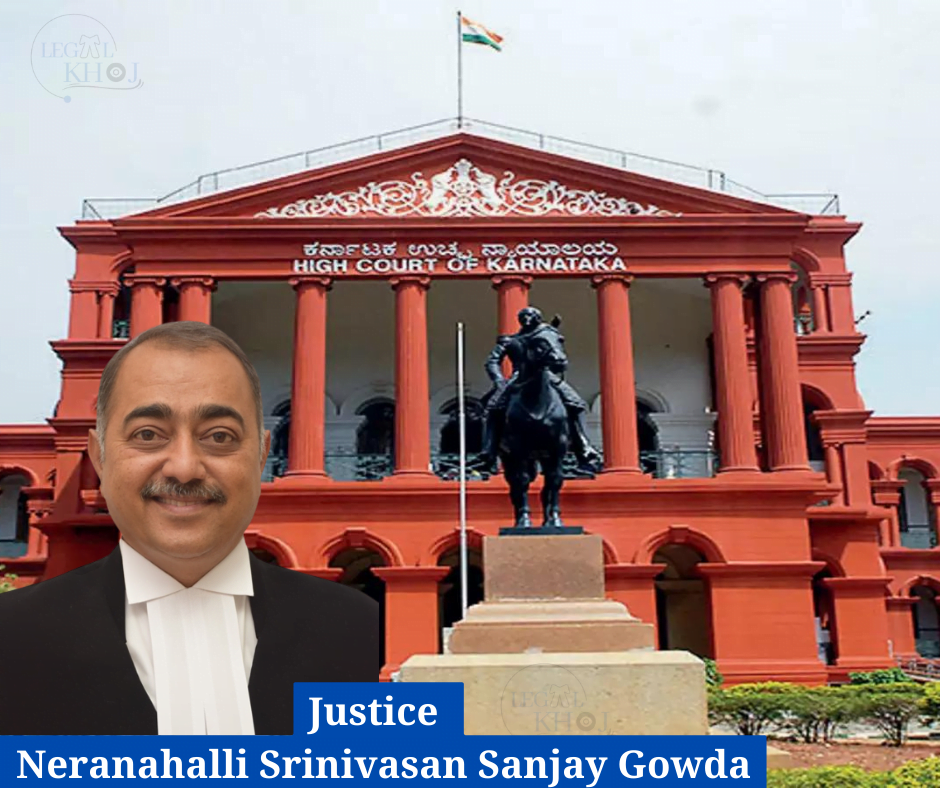In the case before the Karnataka High Court, the State Government’s approval for investigating the petitioner under Section 17-A of the Prevention of Corruption Act, 1988, was challenged. The Karnataka High Court, presided over by Justice Neranahalli Srinivasan Sanjay Gowda dismissed the petition, emphasizing that the criteria for granting approval to investigate a public servant are not as strict as those required for granting sanction to prosecute a public servant. The judgment highlighted the need for a public servant’s integrity to remain beyond suspicion, akin to the saying “Caesar’s wife must be above suspicion.” If doubts arise regarding a public servant’s integrity, and the Investigating Officer deems an investigation necessary, it is in the best interest of both the Government and the public servant to dispel such suspicions. To achieve this goal, the Government should have considerable leeway in approving investigations.
Context of The Case Karnataka High Court
The Deputy Inspector General of Police, Anti-Corruption Bureau, submitted a proposal to the Government, seeking approval to investigate the former Commissioner of the BDA and the petitioner, who served as Deputy Secretary-III at the Bangalore Development Authority, regarding allotment issues in a layout.
After reviewing the proposal/request, the State Government determined that a prima facie case existed and granted approval for an investigation under Section 17-A of the Act. Displeased with this decision, the petitioner approached the Karnataka High Court. The petitioner’s legal representatives argued that the Government’s order granting the contested approval lacked proper consideration.
Evaluation by the Karnataka High Court
To thoroughly examine the issue and understand the legal context, the Karnataka High Court deemed it necessary to review the provisions of the Prevention of Corruption Act, 1988.
Upon scrutinizing Section 17-A of the 1988 Act, the Karnataka High Court highlighted that if a public servant is accused of an offense under the Act related to a recommendation or decision made by them, Section 17-A prohibits a police officer from conducting any inquiry or investigation without obtaining approval from the Union Government, the State Government, or the competent authority empowered to remove the public servant. The Karnataka High Court noted that since the petitioner is a State Government employee, approval was sought from the State Government.
The Karnataka High Court emphasized that Section 17-A of the PC Act, 1988 serves as a protective barrier for public servants, shielding them from inquiries or investigations by police officers. It further stated that when seeking approval for an investigation, the Investigating Officer would not be aware of whether an offense under the Act has been committed or the circumstances surrounding the alleged offense. “At that point in time,” the Court elaborated, “the Investigating Officer would only possess knowledge of an allegation of the offense. Typically, to determine if an offense has actually occurred, the Investigating Officer would need to conduct an investigation. where the Investigating Officer only has an allegation to act upon and is yet to establish the details of the alleged offense and collect evidence, the law restricts them from investigating the offense unless approval is granted by the employer, in this case, the State Government.”
The Karnataka High Court emphasized that obtaining prior approval under Section 17A of the Act becomes unnecessary in situations where a public servant is apprehended immediately, caught red-handed accepting or attempting to accept an undue advantage.
Therefore, it is not mandatory for the Investigating Officer to possess substantial incriminating evidence when seeking prior approval under Section 17A. The provision merely requires the Investigating Officer to have credible evidence based on which they believe an investigation is justified.
In this context, the State Government is only obligated to consider the Investigating Officer’s opinion and the evidence in their possession when deciding on the approval request. Section 17A of the Act does not mandate exhaustive scrutiny of all materials held by the Investigating Officer at the time of seeking approval. The State Government’s role is limited to evaluating whether the Investigating Officer’s opinion justifying an investigation is reasonable.
The Karnataka High Court further clarified that if the employer (in this case, the State Government) believes an employee should be investigated for an alleged offense, the employee cannot argue that approval can only be granted if there is explicit and incriminating evidence establishing guilt.

Highlighting the substantial disparity between granting “sanction to prosecute” and “approval to investigate,” the Karnataka High Court pointed out that when seeking sanction to prosecute, the Investigating Officer has completed the investigation and amassed evidence supporting the allegation of the public servant’s guilt. “At the stage of seeking sanction to prosecute, the Investigating Officer is well-equipped and confident that there is material substantiating the guilt of the public servant.” During the sanction-to-prosecute phase, the respective Government must scrutinize all the evidence gathered during the investigation and determine whether it substantiates a case for prosecuting the public servant.
Concerning the granting of approval for investigation, the Investigating Officer typically lacks incriminating evidence and relies solely on credible information about the alleged offense. It is this reliable information that the Government needs to evaluate.
In the present case, the Karnataka High Court noted that the Investigating Officer’s request was detailed, indicating that the procedure had been carried out to facilitate unlawful gains by the involved public servants. The Officer had a clear suspicion of the petitioner’s involvement in an offense. After reviewing the materials presented, the State Government found sufficient evidence suggesting an attempt by the petitioner and the former Commissioner to cause financial loss to the Government. Therefore, the Government deemed it necessary to approve the investigation to uncover the truth in this matter.
The Karnataka High Court observed that the State Government carefully considered the Investigating Officer’s request and assessed the situation judiciously before granting approval for the investigation into the petitioner and others involved.
must read:-
Delhi High Court Recognizes COVID Orphan Support, Dismisses Petitioner’s Plea









Leave a Reply